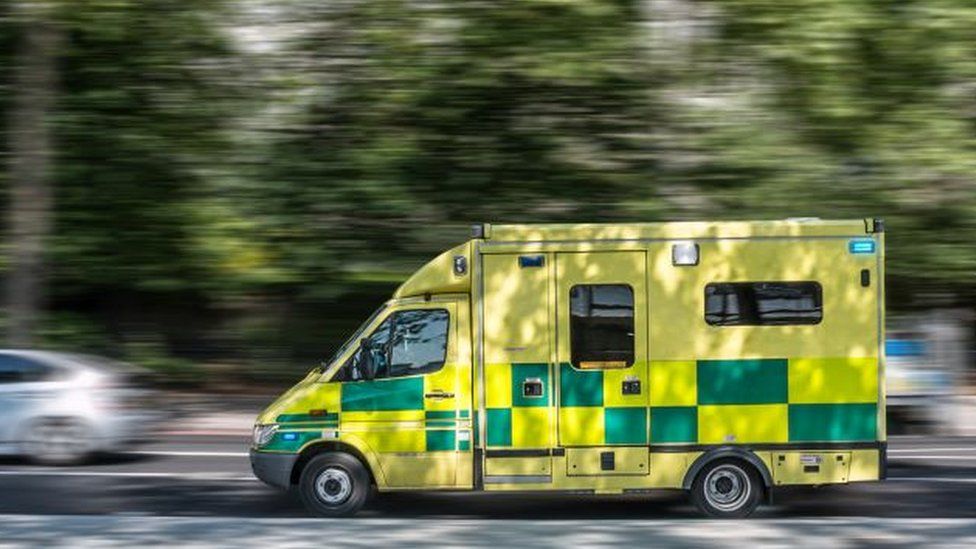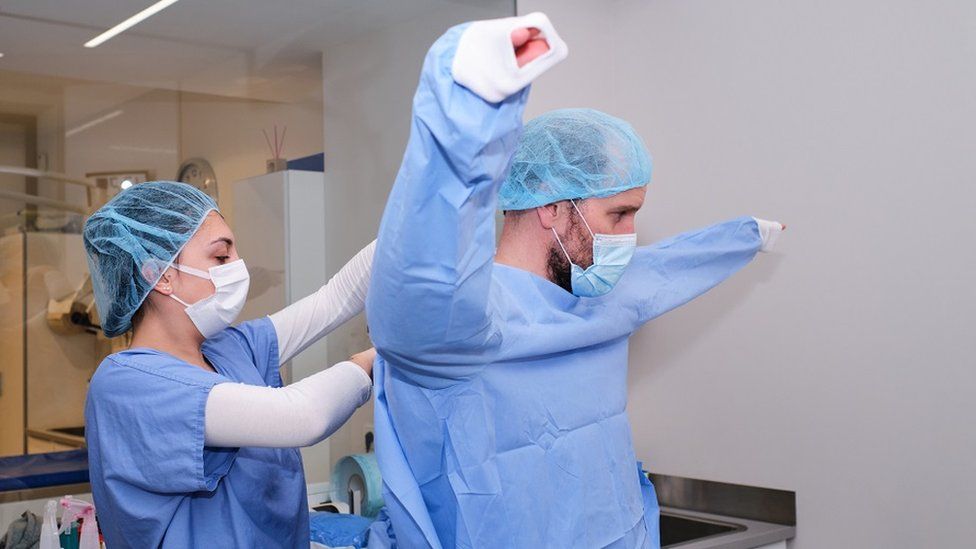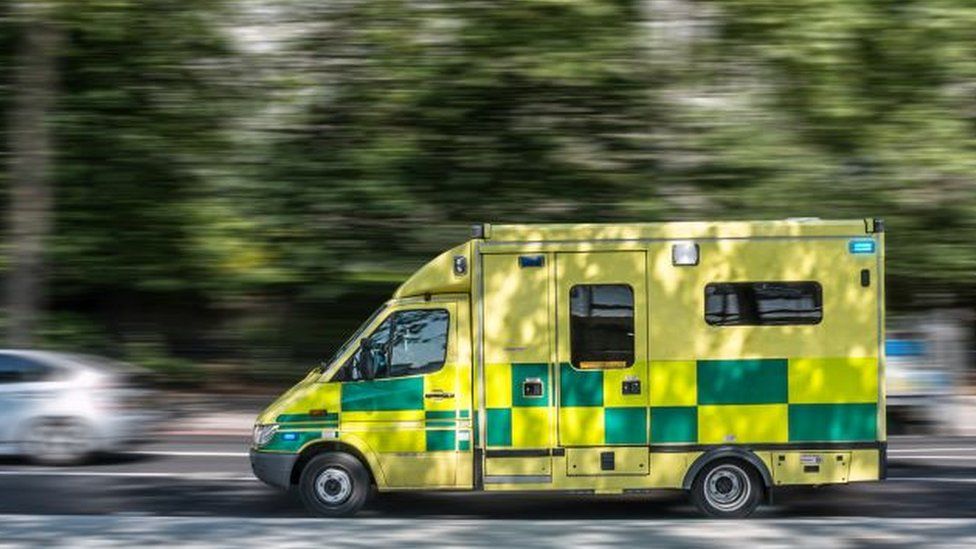 Pacemaker
PacemakerMore than 25,000 healthcare staff in Northern Ireland have begun a one-day strike as part of a pay dispute.
The move from Unite, Unison and Nipsa members, will involve some nurses, ambulance and hospital support staff.
Workers were told they would get a 2022-23 pay award of £1,400, but unions said this would not settle the dispute as it was lower than inflation.
Ambulance staff includes paramedics, call handlers and support workers.
Under trade union law, emergency cover will still be provided and staff can leave the picket lines to attend.
Other health roles that will be affected include some nurses, social workers and hospital support staff.
Trusts have been in contact with patients who will be affected and further details are available on trusts’ websites.
The Royal College of Nursing (RCN) is not involved in Thursday’s strike, but 3,000 nurses who are members of Unison will take part.
Some nurses are also members of Nipsa.
GMB members are continuing action short of strike.
‘NHS in a terrible state’
Anne Speed, from Unison, said that no ambulance or NHS worker wanted to be taking action but there had been no movement from the government on pay.
“The NHS is in a terrible state and nowhere is worse than in Northern Ireland,” she said.
She added that the dispute was about more than pay.
“With too few health workers, the HSC can no longer deliver safe nor maintain quality patient care,” she said.
“Ambulance workers want to be able to respond promptly when people call 999 but they can’t,” she added, pointing to queues of emergency vehicles outside emergency departments and patients on trolleys.
She said Secretary of State Chris Heaton-Harris should be in Northern Ireland “talking about the crisis in our health service”.
He is currently in the US on trade talks.
‘Food banks and second jobs’
The union Nipsa, which has more than 10,000 members, some of whom are nurses, said wages had been “progressively eroded through below inflation pay-rises and pay freezes”.
“Trust workers have been forced to resort to food banks and take on additional shifts/second jobs,” the union said in a statement.
The statement added that members were not only taking action over pay but in protest at staffing levels and travel reimbursement.
- When are the next strikes and what pay do workers want?
- Ambulance waits of 24 hours as pressure mounts
Nipsa said that the NHS mileage cap, the number of miles that can be reimbursed for visits to service users, had been set for the rest of the UK and was not “fit for purpose in Northern Ireland”.
The union said workers in Northern Ireland were, therefore, losing money.
Nipsa also hit out at unfilled posts. In some front-line social work teams 42% of posts are unfilled, leaving staff with “unsustainable caseloads”.


There is a furious new attitude among health workers and it’s being felt not only on strike days but every day at work.
Staff, who have just brought us through a global pandemic, are feeling weary, disheartened even exasperated.
While there has always been a sense of general fed up-ness, the mood is much more discontented – making staff even more determined.
That mood is fuelled by an absence of local government and a feeling that no one actually cares or even wants to engage.
At time of writing, communication from the unions to the secretary of state has had no response.
Thursday’s strike is for 24 hours as opposed to 12 which will have place more strain on patients and management.
Unions are pacing themselves they know they are in for the long haul. This action could last months.
They also have to keep members’ morale up and the public on board.
As we approach February, unions, including teaching unions, are planning a joint hit.
While strike action to date has hit a nerve – they know future action will have to cause a lot more pain.

Unite represents 4,000 workers across the trusts and the Northern Ireland Ambulance Service (NIAS).
Northern Ireland representative Kevin McAdam said 87% of Unite’s members had rejected a “below inflation pay award” with a vote in favour of strike action.
He said members had been left with no alternative but to strike.

A NIAS spokesman said the service had talked to unions to identify what services would be exempt from strike action so the most clinically urgent patients could still be seen.
However, he said challenges were expected on Thursday and the NIAS would maintain the safety of patients with the greatest needs.
They said ambulances would still be available but patients with less clinically urgent needs could face long delays when calling.
They appealed to the public to only call in life-threatening emergencies.
Anyone who is not seriously ill should consider self-care or talk to their doctor or pharmacist, he added.


Members from Unison, Nipsa and GMB last took part in a one-day strike in December.
In England and Wales, ambulance workers are to join nurses in taking strike action on 6 February in what will be the biggest NHS walkout in this dispute.
-
When are the next strikes and what pay do workers want?
-
8 hours ago

-
-
Health workers to get recommended pay award
-
8 December 2022

-
-
Ambulance waits of 24 hours as pressure mounts
-
21 December 2022

-
-
NI nurses take part in second day of strike action
-
20 December 2022

-
